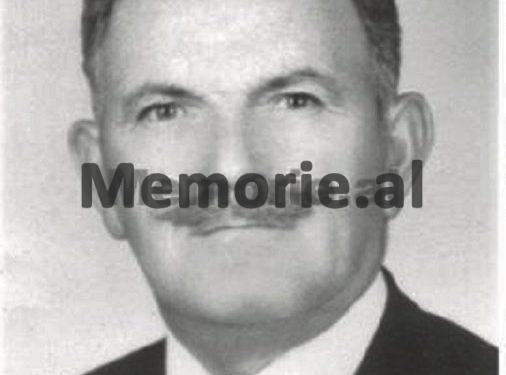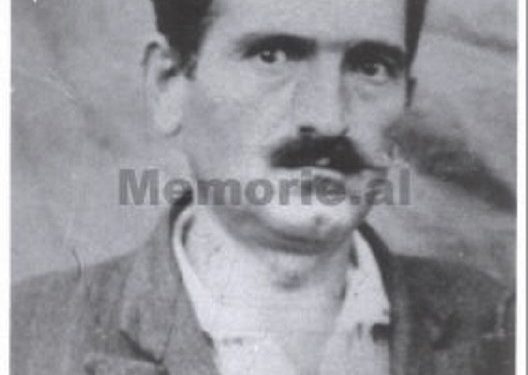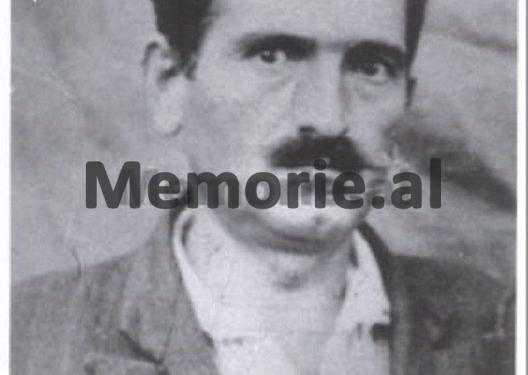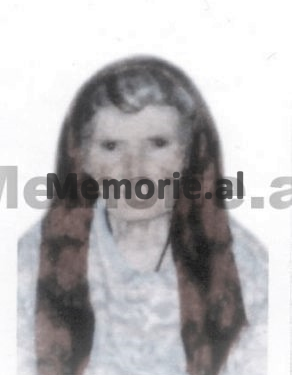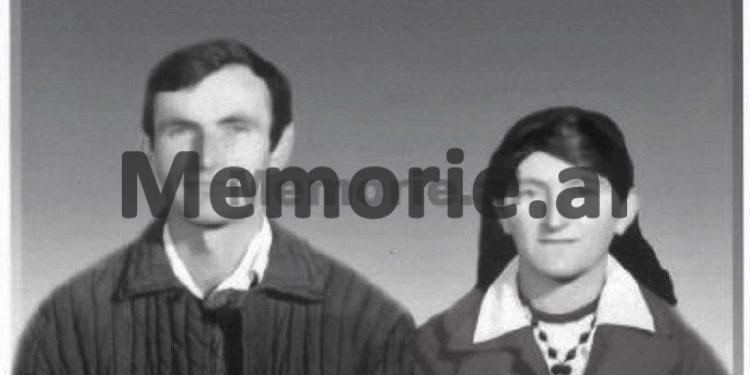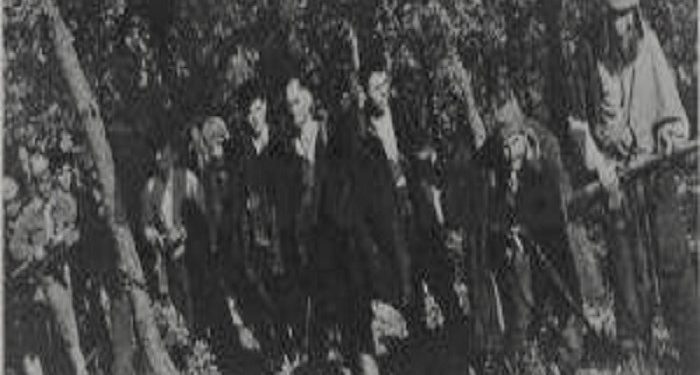Dashnor Kaloçi
Memorie.al publishes the unknown story of the Kasneci family from the village of Kir i Pultit in Dukagjini, which was persecuted in the most barbaric way by the communist regime of Enver Hoxha, witnessed by 75-year-old Mëhill Kasneci: “Security forces took us through the snow at night and when we returned three days later to the empty house, our younger sister, Lezja, died of starvation and cold, as the villagers were afraid to bring us bread and clothes.”
“While me and my mother, Drane, little Katrina, three days old, and the other sister, who was not more than two years old, the Security forces took us with them and, walking through the snow, stopped us in the village of Xhan i Pultit, where they kept us for a few isolated days in a house. After a few days we were allowed to return to our house which was left with only four walls. Since we were left with no bedding and blankets, my mother and two younger sisters and I were forced to sleep in the warm goat dust somewhere in the corner of the house. Two or three days later, our little two-year-old sister, Lezja, died of cold and starvation, because for fear of the Security people, the other villagers could not come to our house to take us to sleep in their houses or to give us something to eat. Testimony for Memorie.al Mëhill Kasneci from the village of Kir i Pultit in Dukagjini, who tells the whole painful story of how his family was massacred by the communist regime of Enver Hoxha, due to the escape from Albania of his uncle and father, Ndue and Nik Kasneci.
Kasneci family from Kiri
The origin of the Kasneci family is from the village of Kir in the province of Pultit in Dukagjini and their house has been quite heard in all that part of Northern Albania, by their first, Mëhill Gjon Palit, who was a very famous figure. known for the wars he waged against Serbo-Montenegrin forces. One of those famous battles in which Mëhill Gjon Pali took part, was what is known in history, as: The Red Stone War, where many Serbian soldiers were killed. Regarding this and the attitude of the family during the period of the Monarchy and the Nazi-fascist occupation of the country, Mëhill Kasneci says: “Since the creation of the Albanian state in 1912, and then throughout the period of the Zog Monarchy, our family, Kasneci, she never mingled with the affairs of politics, but looked at her plight to face the extreme poverty that had plagued her. In 1943, the recruitment office of the Dukagjini sub-prefecture called our father, Nik Kasnec, to arms, whom he mobilized on the front lines of the war with Greece on the south-eastern borders of the country. During that war, Nika was distinguished for the correct performance of the military tasks assigned to him and after its completion he was decorated by the General Command of the Albanian National Army. But except for my father, Nika, who joined the army during the war, our whole family did not interfere in politics at all, joining neither the partisan forces nor the nationalist forces of Balli and Legality. But this rule was broken by our uncle, Ndue Kasneci, who at the end of 1944 and the beginning of 1945, fled to the Shosh Mountains and joined the forces of Major Gjergj Vata, the former Governor of Shkodra who had fled to mountains and fought against communist forces, along with a small group of people were among the most loyal were two captains, Mark Mala and Pal Thani. “After staying in the mountains with them for some time, Uncle Ndue returned home and this marked the first clash of our family with the communist regime of Enver Hoxha.”
The Escape of Ndue Kasnec
In 1946, one of the Kasneci brothers, Markun, was called to appear before the recruitment office of the Shkodra District, to perform compulsory military service. But in his place, there appeared his brother, Nduja, who was immediately mobilized and initially assigned to one of the wards of the Shkodra Garrison. After being held for some time in one of the military units of the city of Shkodra, Uncle Ndue was transferred to the South of Albania, where he was assigned to the Përmet Corps. During the period that Nduja stayed in that military unit of Përmet, he began to speak openly with his comrades, expressing dissatisfaction with the communist regime and the partisan forces which, when they had passed through our area, had committed numerous crimes by executing people of innocent. As a result, Uncle Ndue was arrested by Security men on charges of agitation and propaganda. After that, Nduen was kept for almost two years in the dark cells of Gjirokastra Castle, where he was tortured in the most inhuman way, so that when our father, Nika, went to see me, they did not report him, taking them out. kind of excuses. Two years later, Nduen was released after he benefited from a wide-ranging amnesty granted by the then government to political prisoners who were considered victims of Koci Xoxa. After he was released and came to our house in the village of Kir of Pultit, Uncle Ndue did not stay more than two or three weeks, because in February 1948, together with a large group of Dukagjins, he crossed the state border and left. in Yugoslavia. The group with which Uncle Ndue escaped also included Gjeto Marku i Pecajt, who was known as a family of Bajraktars, Vuksan Vata, as well as Age Voci, the daughter of the Bajraktar of Kirit that our family had as a neighbor. The whole group, of which Nduja was a part, crossed the state border in a place called Maja e Qafë-Pejë-Theth and their escape, as it was said then, made a very big fuss up to the highest districts in Tirana “, recalls Mëhill Kasneci about the escape of his uncle, Ndue Kasnec, in February 1948, who together with a group of other villagers from Dukagjini crossed the state border and left for Yugoslavia.
Security Reprisals at Kasnecët
The great echo that the escape of the group of Dukagjins made, caused the State Security organs to carry out numerous reprisals in that deep province of Northern Albania. In this regard, Mëhill Kasneci recalls: “Less than two or three days after the escape of Uncle Ndue, numerous Security forces raided the Dukagjini area, making great retaliation through all the families of that group that our uncle also escaped. Some of those Security forces also came to our village in Kir, where after raiding our whole house, they brought us in the harshest way, where they found us and our mother, Dranen, who was breastfeeding her sister. our little one, Katrina, (she was only three days old when she was born), was dragged by the arms through the frozen snow. After conducting a thorough search of all the corners of the house, they took all our belongings and left the house with only four walls. After that, they arrested our father Nika, together with his brother, Mark, and took the two of them with them to be sent to the Internal Branch of Shkodra. While they were both leaving for Shkodra, my mother, Drane, little Katrina, three days old, and the other sister, (Lezen), who was not more than two years old, were taken away by the Security Forces, walking through the snow and us. stopped in the village of Xhan i Pultit. There they kept us in solitary confinement for a few days and then allowed us to return to our house in Kir, which seemed to have caught fire. After we returned to our house which was left with only four walls, since they had left us no bedding and blankets, my mother and two younger sisters and I were forced to sleep on the ground getting into the warm dust of the goats. somewhere in a corner of the house. Two or three days later, our little two-year-old sister, Lezja, died of cold and starvation, as for fear of the Security people, the other villagers could not come to our house to take us to sleep in their houses or to give us something to eat, Given the very difficult situation where we were, my uncles from the village of Gimaj of Shala, came and took me, while the mother and younger sister, Katrina, stayed there at home “, Remembers Mëhilli.
The Escape of Nik Kasnec
Mëhill Kasnec’s father, Nikë, together with his brother, Markun, after the escape of their brother, Ndues, were taken from the Shkodra Internal Branch and interned in the Porto-Palermo Castle camp. After staying in that camp for three years, Nik Kasnec was released from there and returned to his home in the village of Kir, where his wife, Drania, was staying with his young daughter, Katrina. But even after his release from exile, the Security men did not leave Nika to get upset with his family. In this regard, his son, Mëhill Kasneci testifies: “After being released from the Porto-Palermo camp, the father, Nika, came to our house in Kir, but did not stay there for more than a month and a half, because he left and escaped from Albania and went to Yugoslavia. A few days before he escaped, the Security Operative of our area, Captain Hasan Haxhija, asked Nika to “work for the state”. But his father replied, “My family and I have never worked for any government, neither for Zog, nor for anyone else. Therefore, in case you have released me for this job, take me back to where I was “, and put his hands in front of the Security Captain, letting him know that he accepted the handcuffs better than the cooperation with them. After this conversation, Captain Hasan Haxhija left his father to imply that he had no choice but to flee Albania. Thus, seeing the difficult situation in which he was, the father decided to flee Albania as well. But this did not happen until July 1951, when Uncle Mark, who had fled to Yugoslavia, crossed the border, and the seventh came to our village and took his father with him and returned to Yugoslavia. Together with Uncle Ndue, in his group that came secretly to our house in Kasnec, were also Kol Sokoli from the village of Gimaj of Shala, Mëhill Zefi from Micaj, Gjon Marashi from Gimaj, Vuksan Vata, Lulash Gjoni of Xhani and a Tropojan who I do not remember his name. When they came to pick up the father, they were dressed as pursuit soldiers and stayed for a long time in a secret place somewhere near our house. There in that place, the father joined them and immediately the whole group was taken and fled towards the place called Kodra e Kujes in Plan and after walking for three weeks traveling only at night, they crossed the border to Maja-Peja of Thethit “, recalls Mëhill Kasneci, regarding the escape of his father, Nikë, in July 1951.
Murder of Ndue Kasnec in Dragobi
After the escape of Nik Kasnec, in revenge, his brother, Markut, who had been interned in Tepelena since 1948, was extended for another eight years. While Nik Kasneci after gaining political asylum status and staying for some time in different Western European countries, was finally given the right to go to the US. While Nika was still in the political emigrant camps, on August 16, 1952, his brother, Nduja, along with three or four others, crossed the state border and, trying to enter the Dragobia Gorge, remained besieged. by the Security forces. Together with Ndue, the group that had come with a secret mission to see the situation on the ground, before the landing of the parachute groups, included Ndue Noshi from Mërturi, as well as another from the Municipality of Koman. The three fought all night until they were killed by bullets fired by the Pursuit Forces soldiers, who had surrounded the entire country. Their lifeless bodies were then taken and left for three days in front of the Tropoja Internal Branch, until they were buried in an unknown place that has not been found to this day. “While Uncle Ndue was killed and without a grave, and the other uncle, Marku, remained in exile, with our father Nika who was in political emigration to the USA, we could not contact him until 1991, when he returned permanently to Albania”, concludes Mëhill Kasneci, the tragic story of his family who for more than 40 years suffered from the terrible class war being persecuted in the most barbaric way by the communist regime of Enver Hoxha./Memorie.al




